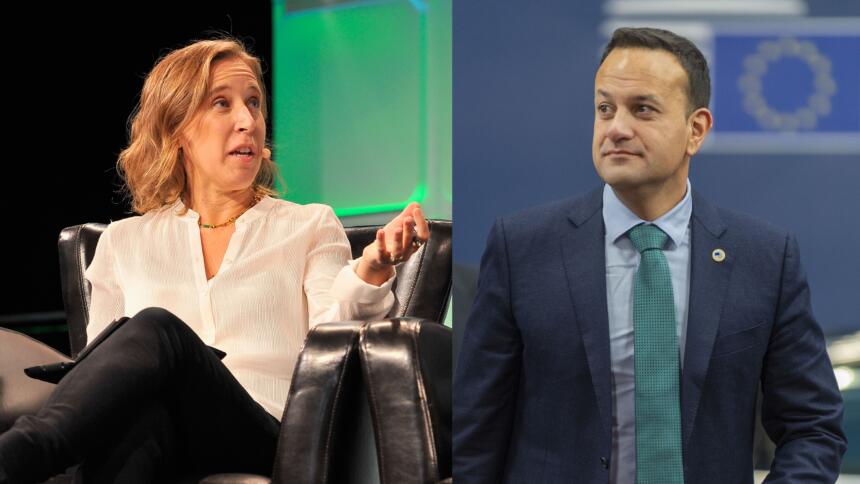Youtube CEO Susan Wojcicki has met Google’s most important European ally, Taoiseach Leo Varadkar, for a closed-doors meeting at his official residence in Dublin this summer. During their meeting, Wojcicki and Varadkar discussed Youtube’s content moderation policies, according to documents obtained by netzpolitik.org through a freedom of information request (read here in full). The documents hint at early lobbying on a key piece of EU legislation.
The Digital Services Act was recently announced by the incoming Commission of Ursula von der Leyen. The Act shall deal with content moderation, but also regulate against unfair business practices by platforms and perhaps even update liability rules, according to a leaked Commission paper circulating in Brussels.
Ireland is the European headquarters for Google, Facebook and Apple. The tech giants appreciate low Irish corporate taxation but also enjoy Ireland’s sympathetic approach to data protection and its support for Big Tech’s ambitions in Brussels.
„Silicon Ireland“ goes to Brussels
The Irish government is a key pro-tech voice in European legislation. Recently, Politico reported that the Irish government parroted Facebook’s arguments against tough data protection rules in the upcoming ePrivacy regulation. Varadkar’s predecessor Enda Kenny earlier had promised Facebook to influence the work on the landmark General Data Protection Regulation, according to documents leaked to the Guardian.
Google is the most active lobbyist among tech companies in Ireland, Transparency International notes in a recent blog post. The NGO mockingly calls the EU country „Silicon Ireland“ for its close ties with Big Tech. According to their figures, half of Google’s lobbying in Dublin concerns EU legislation.
Irish officials prepared Varadkar’s staff for several EU-related topics ahead of the meeting with Wojcicki. A briefing note mentions European initiatives including the Digital Services Act. The meeting was set up on recommendation of IDA Ireland, a body promoting foreign investment in the country.
At the meeting on July 24th in government offices in Dublin, YouTube’s representatives informed the Irish leader about measures „to ensure responsibility through credible content moderation“, in an apparent rebuttal of criticism of the video platform as fostering hateful speech and censoring minority voices.
„This is achieved through the publication of guidelines to inform the work of moderators, the deployment of moderators to review flagged content; and the development of machine learning to take down content before it is reviewed by officials“, the minutes recall.
The documents give no indication of how the Irish leader reacted to Youtube’s presentation. Neither Google nor the Irish government replied to netzpolitik.org’s requests for comment on the meeting.
Youtube, Facebook and other platforms employ thousands of content moderators across the globe to remove hate speech, copyright infringement and other illegal or unwanted content. Critics have highlighted the failure of large platforms such as Facebook and Youtube to effectively curb undesirable content.
Meanwhile, moderation work is often outsourced to overworked and poorly remunerated workers overseas. New EU rules for moderation are likely to result in increased obligations for platforms to moderate content and safeguard free speech, potentially creating millions of Euros in additional cost for companies.





0 Ergänzungen
Dieser Artikel ist älter als ein Jahr, daher sind die Ergänzungen geschlossen.